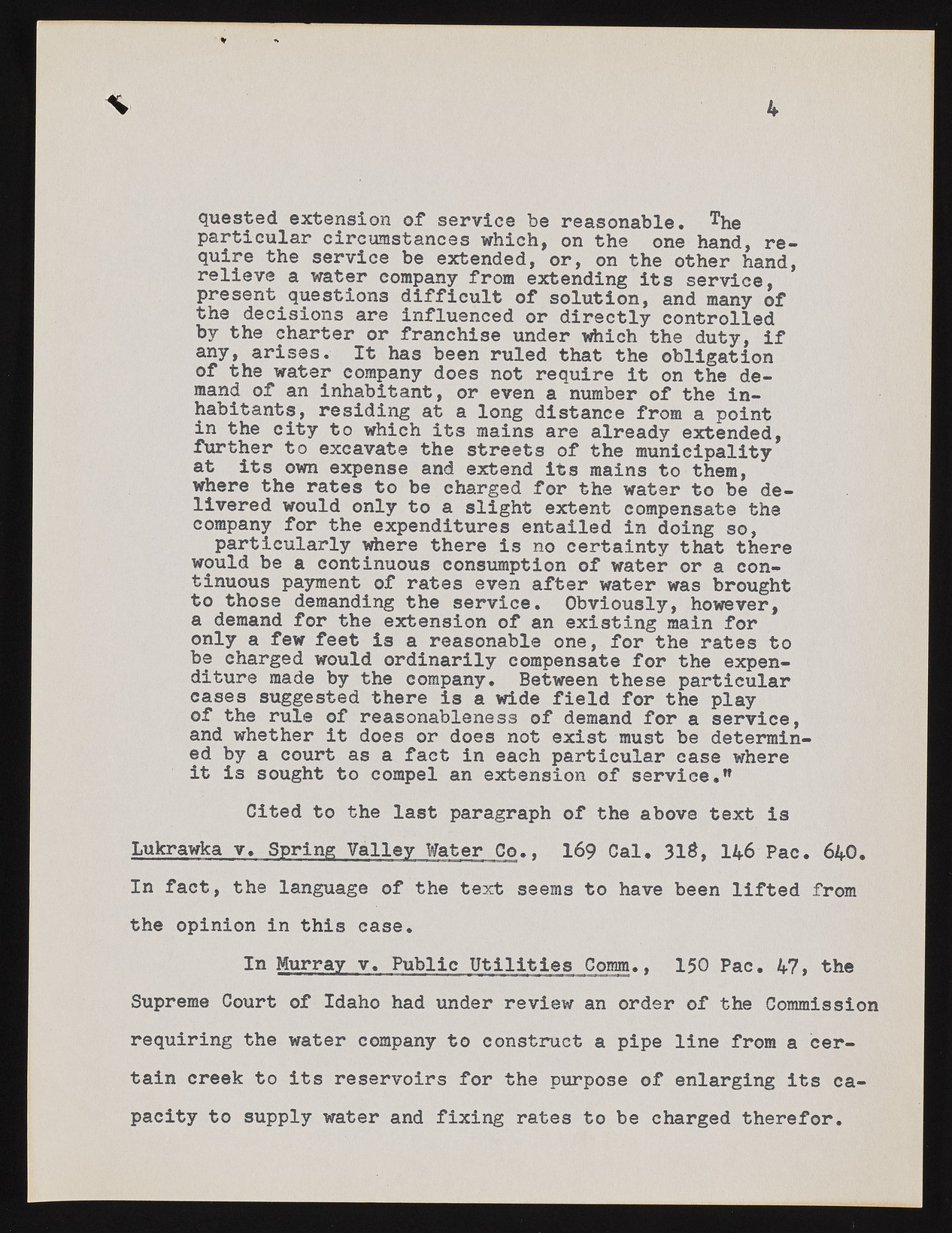Copyright & Fair-use Agreement
UNLV Special Collections provides copies of materials to facilitate private study, scholarship, or research. Material not in the public domain may be used according to fair use of copyrighted materials as defined by copyright law. Please cite us.
Please note that UNLV may not own the copyright to these materials and cannot provide permission to publish or distribute materials when UNLV is not the copyright holder. The user is solely responsible for determining the copyright status of materials and obtaining permission to use material from the copyright holder and for determining whether any permissions relating to any other rights are necessary for the intended use, and for obtaining all required permissions beyond that allowed by fair use.
Read more about our reproduction and use policy.
I agree.Information
Digital ID
Permalink
Details
Member of
More Info
Rights
Digital Provenance
Publisher
Transcription
4 quested extension of service be reasonable, ^he particular circumstances which, on the one hand, require the service be extended, or, on the other hand, relieve a water company from extending its service, present questions difficult of solution, and many of the decisions are influenced or directly controlled by the charter or franchise under which the duty, if any, arises. It has been ruled that the obligation of the water company does not require it on the demand of an inhabitant, or even a number of the inhabitants, residing at a long distance from a point in the city to which its mains are already extended, further to excavate the streets of the municipality at its own expense and extend its mains to them, where the rates to be charged for the water to be delivered would only to a slight extent compensate the company for the expenditures entailed in doing so, particularly where there is no certainty that there would be a continuous consumption of water or a continuous payment of rates even after water was brought to those demanding the service. Obviously, however, a demand for the extension of an existing main for only a few feet is a reasonable one, for the rates to be charged would ordinarily compensate for the expenditure made by the company. Between these particular cases suggested there is a wide field for the play of the rule of reasonableness of demand for a service, and whether it does or does not exist must be determined by a court as a fact in each particular case where it is sought to compel an extension of service.w Cited to the last paragraph of the above text is Lukrawka v. Spring Valley Water Co.. 169 Cal, 3lS, 146 Pac. 640. In fact, the language of the text seems to have been lifted from the opinion in this case. In Murray v. Public Utilities Comm., 150 Pac. 47, the Supreme Court of Idaho had under review an order of the Commission requiring the water company to construct a pipe line from a certain creek to its reservoirs for the purpose of enlarging its capacity to supply water and fixing rates to be charged therefor.

